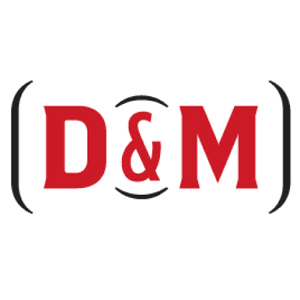
Heartfelt as it is, I'm not sure to whom, exactly, the headline of this piece should be most directed.
To the bankers now holding the fate of the venerable Vancouver-based publishing firm in their grasp? Yes! Please! Cut founder Scott McIntyre some sort of refinancing deal that will allow him and his talented team to keep bringing great books to Canada and the world.
To the book selling industry in Canada, dominated now by Amazon and one big box store chain? Hey, stop using publishing houses as your risk absorbing sponges, and get back to committing to selling a serious percentage of the books you order, instead of shipping them back by the truckloads like day old lettuce gone wilted. That's the kind of behaviour that bankrupts a Canadian publisher.
To the Harper government? Well, why not? Heritage Minister James Moore, time for some creative intervention here in the corner of British Columbia that elects you. And if you think our national culture can do without one of its last, remaining sizeable publishing houses, then expect your government to be branded uncaring philistines more obsessed with refighting the War of 1812 than protecting current Canada against U.S. cultural invasion.
To the Canadian book lover? Um, buy more Canadian books! If the imprint is Douglas & McIntyre, Greystone or New Society Publishers, you're helping to keep alive Canada's largest independent publisher.
When word came Monday that D&M Publishers was going into receivership, it was like feeling the sharp, sudden jolt of an earthquake. A first check around offered reason for hope. D&M's statement said it was still selling books, just restructuring, that it aimed to reorganize and then keep doing what it does best, publishing essential, high quality Canadian literature. But then, as the hours went by, stories emerged of mass firings. Sources murmured the damage was so deep it could mean the inevitable razing of the whole operation. It was like descending dark stairs with a flashlight, checking the foundation -- and finding it crazed with fractures running every which way. The foundation I speak of is not that of D&M but of so much creative life here in Vancouver, British Columbia, and Canada.
Take The Tyee as an example. We regularly publish writers whose work is either derived from or leading up to a book project tied in some way to D&M. In the last month alone we hosted two public events -- one satirically funny (The Canada Party Manifesto unveiled), one vitally serious (Andrew Nikiforuk on The Energy of Slaves) -- keying off books just published by D&M. We benefit financially by publishing ads for D&M books. We Tyeesters drink at bars with D&Mers (who are generally young and always whip smart and a lot of fun). We share a geeky interest in dreaming and scheming about how to grow and adapt to the digital imperatives of the new media world (don't for a moment think D&M's problem was being slow to "get" the digital thing. They were on top of it).
But I plead for D&M's salvation not because it's a local and therefore sentimental favourite. Canada needs D&M alive because it's one of the last independent, Canadian publishing houses with the infrastructure to plug this country's writers into the global literary marketplace. Scott McIntyre, vice-president Rob Sanders and the rest of the team have, over the years, honed their ability to discern talent where it blooms in Canada and to showcase it to other countries, employing contractual relationships built up painstakingly over the years with other publishing houses and their marketing arms all over the world. Lately D&M's team had put a fair amount of effort into successfully nailing down direct relationships with the various digital book platforms -- iTunes, Kindle, Kobo, etc. That gave a fighting chance to Canadians wanting to publish a successful e-Book. In industry-speak all of this is called having built "capacity" -- a capacity that benefitted Canada as a whole and can't be easily replaced by publishing firms with smaller, overstretched staffs.
A bitter irony lies in the fact that Scott McIntyre was instrumental in the crafting of a United Nations Convention on the Protection of the Diversity of Cultural Expressions, which recognized that nations' cultural products should be treated differently than other commodities when negotiating global trade agreements, because power imbalances render smaller nations' cultures vulnerable to global market forces that left unchecked will sweep away what is preciously unique and, ultimately, a gift to the rest of the world.
The last time I chatted with Scott McIntyre, a month ago, we were straining to hear each other over the din in Wise Hall during a break in the Canada Party book launch and jokefest The Tyee was helping to put on. Scott was telling me how hard it was to make a dime anymore in the publishing business, ticking off all the obstacles thrown in the way and getting bigger all the time. I should have shown more concern, but I'd heard Scott tell a similar story for years. Instead I just took a long sip on my beer and smiled and soaked in the joy that his people had helped bring into the world that evening.
Phone calls made to D&M people yesterday yielded not one soul who was willing to go on the record. Yet while the mood was unrelievedly grim, no one said the game was totally up, either. Apparently folks are working feverishly behind the scenes to salvage, somehow, the institution we took for granted.
Someone, anyone, save Douglas & McIntyre! ![]()
Read more: Local Economy















Tyee Commenting Guidelines
Comments that violate guidelines risk being deleted, and violations may result in a temporary or permanent user ban. Maintain the spirit of good conversation to stay in the discussion.
*Please note The Tyee is not a forum for spreading misinformation about COVID-19, denying its existence or minimizing its risk to public health.
Do:
Do not: